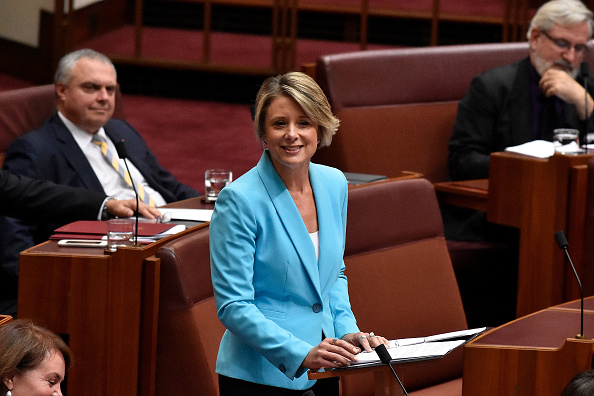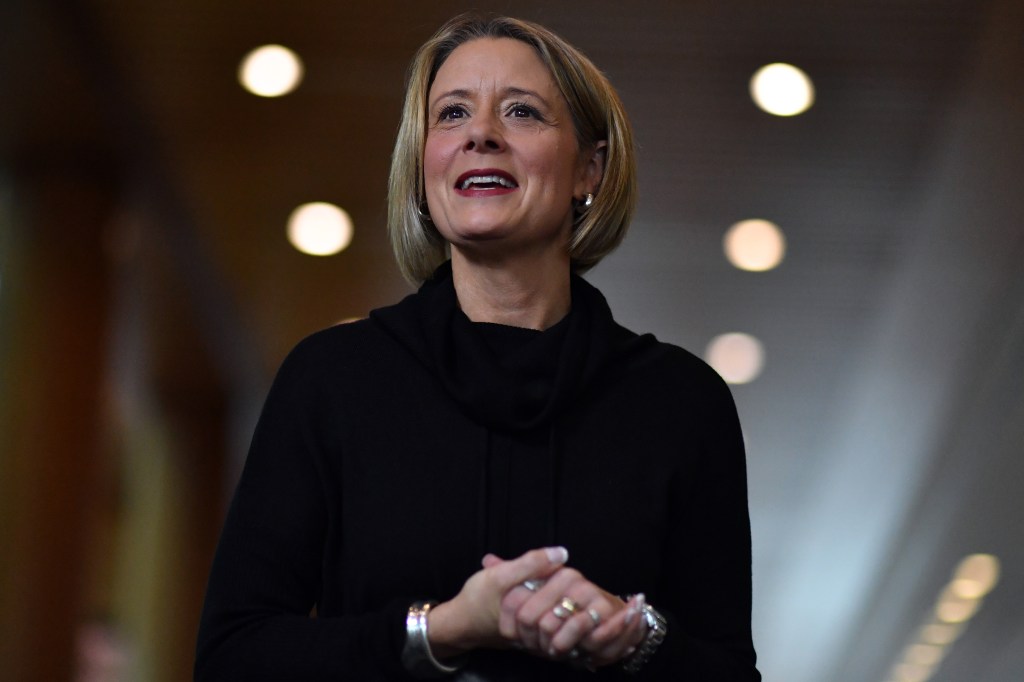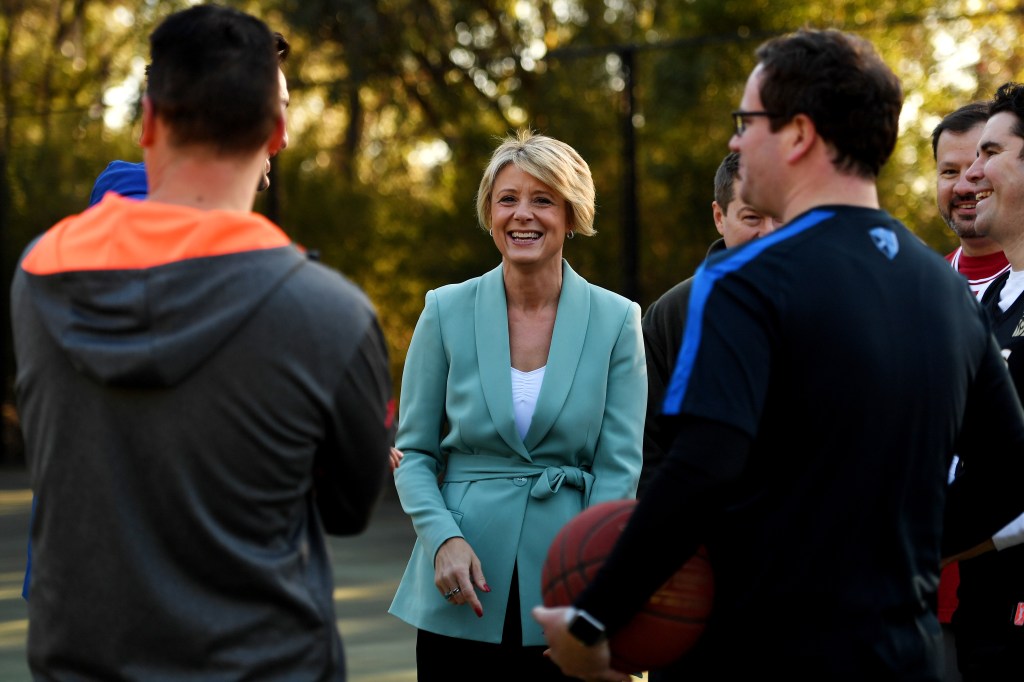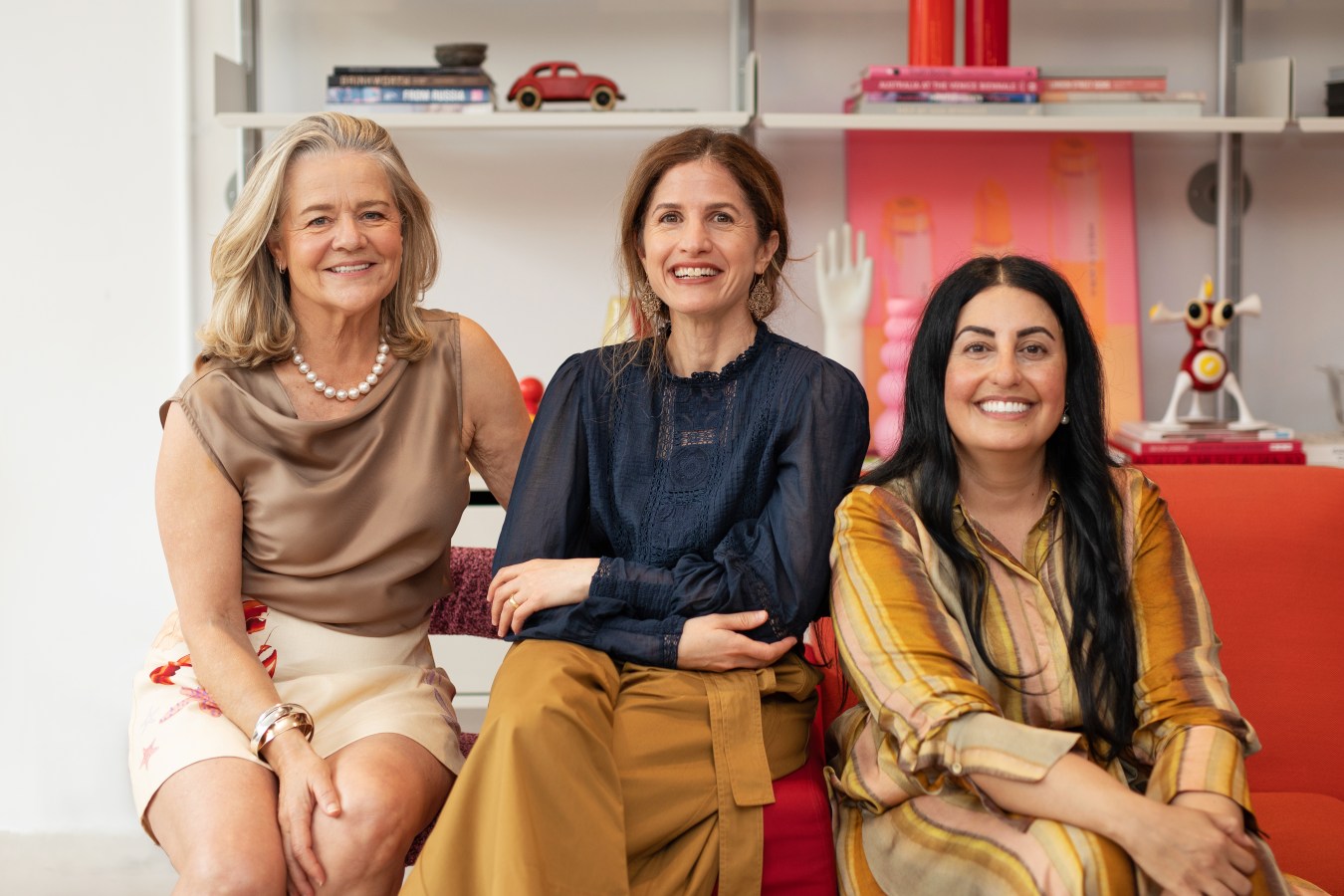Few women in Australia carry the breadth of leadership experience of former New South Wales premier and Australian senator Kristina Keneally. From politics to sport and now her role as chief executive of the Sydney Children’s Hospitals Foundation – Keneally has experienced it all.

American-born Keneally – Premier of NSW from 2009 to 2011 – began her career in the not-for-profit sector as the NSW youth coordinator for the Society of St Vincent de Paul. Youth and children have always been a focus for Keneally, who is the mother of two sons and a daughter, Caroline, who was stillborn. She was the patron of the Stillbirth Foundation Australia for many years and is known for her advocacy to reduce stillbirths in Australia.
One of her biggest pieces of leadership advice is to “stop caring what people think”, to switch off from social media and to focus on treating people how you would like to be treated. She also believes that talent only gets you so far – hard work is the lynchpin of success.
Keneally’s role as CEO of the Sydney Children’s Hospitals Foundation allows her to bring together her passion for children and health with her leadership, change and policy experience.
“Every day, I get to help improve the care, experiences and opportunities for sick kids and their families. It is a humbling and tremendous opportunity,” she told Forbes Australia.
What is something from your childhood or youth that drove you to achieve?
Competing in sports, specifically team sports and contact sports. I learned how to be ambitious, set goals, plan, train, prepare, work collaboratively with my teammates, and accept both victory and defeat gracefully. I learned how to manage conflict, lead others, and take coaching and direction. Sports also allowed me to know the difference between assertiveness and aggressiveness, test my limits for pain and endurance, and understand the benefits of being emotionally and physically strong.
What is something you do every day that sets you up for success?
Prepare for the next day before I go to bed at night and get up early in the morning. When my kids were young, I got up early in the morning to do laundry, make dinner, or exercise. Now that the kids are grown, I get up at 5 am every day, put on the exercise clothes I laid out the night before, and sit down for 75 minutes of work. Sometimes I focus on a project; other times, I do tasks and emails. Then I do an hour of exercise – running, yoga or weights. By 7:30 am, I feel I have already accomplished a great deal and could take on the world.

What was one failure or disappointment that encouraged you to strive higher or do better?
I was cut from the basketball team at my high school in Toledo, Ohio. Truth be told, I had been able to coast in basketball up to that point [based] on my height and talent. Being cut proved a great teachable moment. I realised that raw talent on its own does not guarantee success. Hard work is also required. I decided I would never again lose an opportunity because I had failed to put in the effort to earn it. It is ok to try your best and fail, but it is not ok to fail because you didn’t try your best. (I worked hard and got back on the team – in year 11, we were in the top 10 teams in Ohio.)
What would you like to have done with your life if your career hadn’t taken the path that it did?
I do not live with regrets. I own my career choices. I have been fortunate to have experienced many different roles and learned something valuable from each one. That being said, I think I would have found satisfaction in being a police detective or perhaps an officer in a national security agency. I like deductive reasoning, and the justice and community service aspects of those roles appeal to me. But, back in the 1980s, national security and policing were not the kinds of jobs that the nuns at my high school recommended young ladies consider for their futures.
“It is ok to try your best and fail, but it is not ok to fail because you didn’t try your best.”
Kristina Keneally
What is one attribute that you think other people underestimate in you?
I stopped caring a long time ago about what people think. As a public figure, I could
have gone mad – or limited my potential – if I had taken notice of every public criticism or comment. Thanks to social media, everyone is a public figure and vulnerable to rude, mean, or uninformed comments. Some advice: care [about] the opinions of people you know and respect, and most of all, respect yourself and be true to your purpose and goals. And ignore everyone else! Some more advice: get off social media, or at least take a break, and see how much better, calmer, and more productive life is.
What do you love to do for enjoyment outside of work?
My greatest peace comes from being outside and physically active – kayaking, bushwalking, stand-up paddling, and trail running. I love being in and around water, making life in Sydney a joy. I also love cooking for friends and family – including my speciality, keto cheesecakes. I went keto during the pandemic, and it has been great for my health, fitness, reducing inflammation and revitalising my enthusiasm for cooking.

What is the most powerful action you have used to be successful in life, business, and relationships?
Treat people as you want to be treated – the “Golden Rule”. It is the best guide in any situation. It is also what was instilled in me by my parents, teachers, and my faith – that we have an obligation to help others and make the world a better place than how we found it. A passion for social justice and service drove me to politics in the first place – to contribute to a stronger and fairer society. I’ve left politics, but that passion will never leave.
“Treat people as you want to be treated – the “Golden Rule”. It is the best guide in any situation.”
It is why I love working for the Sydney Children’s Hospitals Foundation now. Every day I get to help improve the care, experiences and opportunities for sick kids and their families. It is a humbling and tremendous opportunity.
In moments of pain, how did you manage to keep going? What was the motivator?
The most painful experience was losing my second child, my daughter Caroline, to stillbirth. I kept going thanks to the unconditional love of my husband Ben, who was experiencing his own grief as well; the hope offered in my first-born son, who was only 15 months old at the time; the care provided by amazing doctors and social workers at the Royal
Women’s Hospital and the Sydney Children’s Hospital in Randwick; and my belief that our human lives – no matter how long or short – have meaning and transformative power in this world.
What keeps you up at night?
Not much. After so many years in varied high-profile roles with big responsibilities, I have learned how to shut my brain down at night – often by using routines to prepare for sleep and the day ahead. If I had not developed these habits, I would have never gotten any sleep.
Women in politics: what needs to happen on this front? Are there still challenges?
So much has changed in the past 20 years – most of it for the better. I am proud to have played a part in that change. I have confidence that the current generation of women in politics will make even bigger and better changes ahead.
What is something you value more than anything else?
The love of my family. They are the most important people in my life. I am full of gratitude for their unconditional love for me, and I would do anything to help them – especially my children – achieve their dreams and potential.
What is next for Kristina Keneally?
I am fortunate to lead a team of talented and collaborative fundraisers and change agents at the Sydney Children’s Hospitals Foundation. SCHF is the largest children’s charity in Australia and one of the largest children’s hospital foundations in the world. In the last three years, we have raised $170 million for the Sydney Children’s Hospitals Network. In May, we held the annual Gold Dinner, where the funds raised will help to support projects such as The Centre for Clinical Genetics, palliative care, mental health, critical care and research into rare diseases. At the foundation, we have big ambitions for the next three years – to raise even more funds to support excellent clinical care, the best possible patient experience, and cutting-edge research in kids’ health. For nearly 40 years, SCHF has supported all sick kids: toddlers and teenagers, newborns and the not-yet-borns, those who can be cured, and those who just want a fighting chance.
I am so excited to help set the Sydney Children’s Hospitals Foundation up for the next 40 years of growth, creating transformative and generational impacts on children’s health.
Forbes Australia Issue Five is out now. Tap here to secure your copy and membership.



